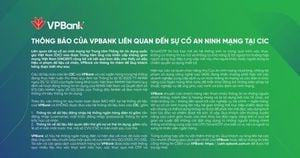Tensions surrounding online gaming platforms have escalated dramatically, especially with the recent ban on Roblox by Turkish authorities. On August 7, 2024, Turkey's Adana 6th Criminal Court of Peace decided to block access to Roblox, highlighting growing concerns over child safety and online content regulation. This latest move follows similar restrictions on other digital platforms, including Instagram, which were banned just days earlier amid allegations of censorship and inappropriate content.
Roblox, developed by the American Roblox Corporation, is more than just a game; it’s a vast community where users can create and share games. With millions of users, especially among children and teenagers, the ban raises significant questions about how digital spaces are governed and the responsibilities of online platforms when it involves young users.
The ban's rationale revolves primarily around serious concerns related to content moderation. Turkish officials expressed alarm over reports of sexual content on the platform and its alleged capacity to exploit children. Authorities accused Roblox of inadequately protecting its younger users, which led to swift action from the court.
“It is everyone's duty to look out for, protect, and support the best interests of our children,” stated Turkey’s Minister of Justice after the ban was announced. Observers noted the decision aligns with recent efforts by the Turkish government to tighten control over online content, especially what it deems harmful to children.
An official from Turkey's Directorate of Communications listed multiple reasons for the ban, citing rampant reports of pedophilia associated with Roblox’s virtual parties. These platforms were identified as potential gathering spots for predators, contributing to the decision to block access to the game.
Adding to the concerns, authorities highlighted how Roblox’s virtual currency, Robux, was reportedly being misused. Allegations surfaced claiming bot accounts were distributing Robux to entice children to engage with inappropriate content. This manipulation of the platform’s economy appears to have been instrumental to the court’s decision.
Despite Roblox's popularity—according to AppMagic, the platform accumulated over 41 million downloads and generated millions of dollars from player spending—the ban raises alarms not just about child safety, but also about the livelihoods of countless game developers who rely on the platform for income. There are reports of many talented game developers hailing from Turkey, contributing to the global Roblox community. The decision has left many of them wondering about their future prospects.
“Roblox being banned in Turkey is devastating. Half of the talented anime devs I know are from Turkey,” tweeted one dismayed user, expressing the sentiment of frustration among developers whose work and income sources now hang uncertainly.
The ban has sparked numerous reactions, including disappointment from parents and educators who see the value of the platform for creative expression and learning. Journalists commented on how millions of parents are now left grappling with how to explain this abrupt change to their children.
Turkey’s track record of imposing access bans is stark. The country has previously restricted access to thousands of websites, with reports indicating over 137,000 bans last year alone. Criticism of these actions is mounting, particularly from human rights advocates who argue such measures are violations of freedom of expression.
Istanbul Mayor Ekrem İmamoğlu commented on the recent bans, calling them “incomprehensible.” He criticized the authorities behind these decisions, claiming they are out of touch with the realities of modern technology and the economy. His views resonate with many citizens who feel frustrated by the government's tight grip on digital platforms.
Many tech experts and journalists have described the increasing censorship as part of broader government efforts to control the narrative and limit dissent online. Critics argue this creates an environment of digital repression, undermining platforms' ability to serve as spaces for free expression and individuality.
Roblox has become one of the latest casualties of this trend, and it’s reflective of how digital spaces across the globe are facing scrutiny and regulation. The decision to block such platforms typically points to underlying cultural and political dynamics, and it remains to be seen how this will impact the future of digital play and creativity within Turkey.
While the community of users, especially developers, hope for clarity and perhaps the lifting of restrictions, the persistent concern over child safety continues to shape governmental policies. Interest now lies not only in Roblox's operational future but also how it and similar platforms will address issues of safety and content regulation to satisfy both users’ desires for creativity and governments' demands for oversight.
The Turkish ban on Roblox is not just about one platform. It's part of the larger conversation about the responsibilities of online ecosystems to protect their youngest users, the efficacy of government oversight, and the balance between safety and creativity. Future discussions must navigate these very real concerns if digital spaces are to thrive safely for everyone involved.



